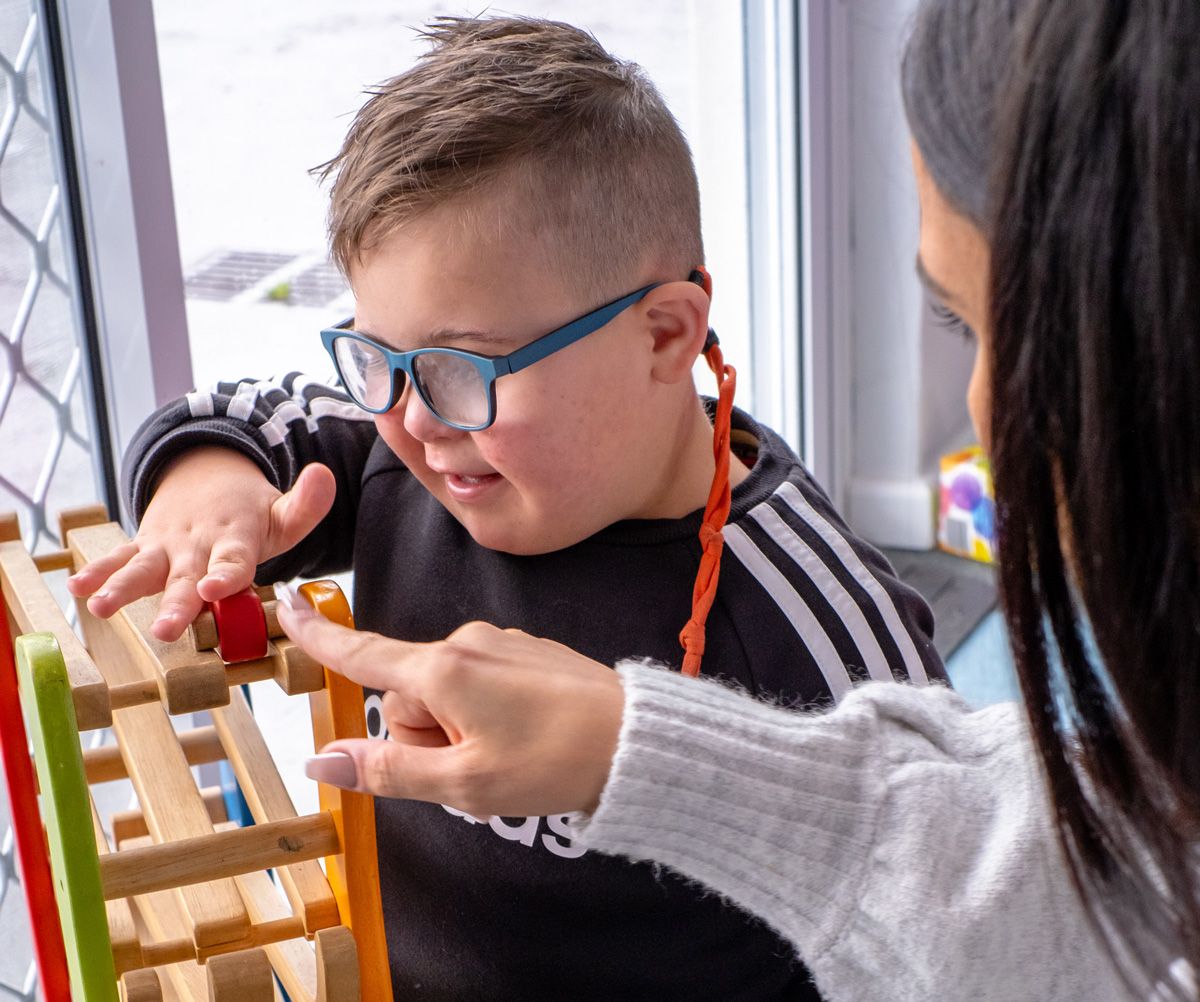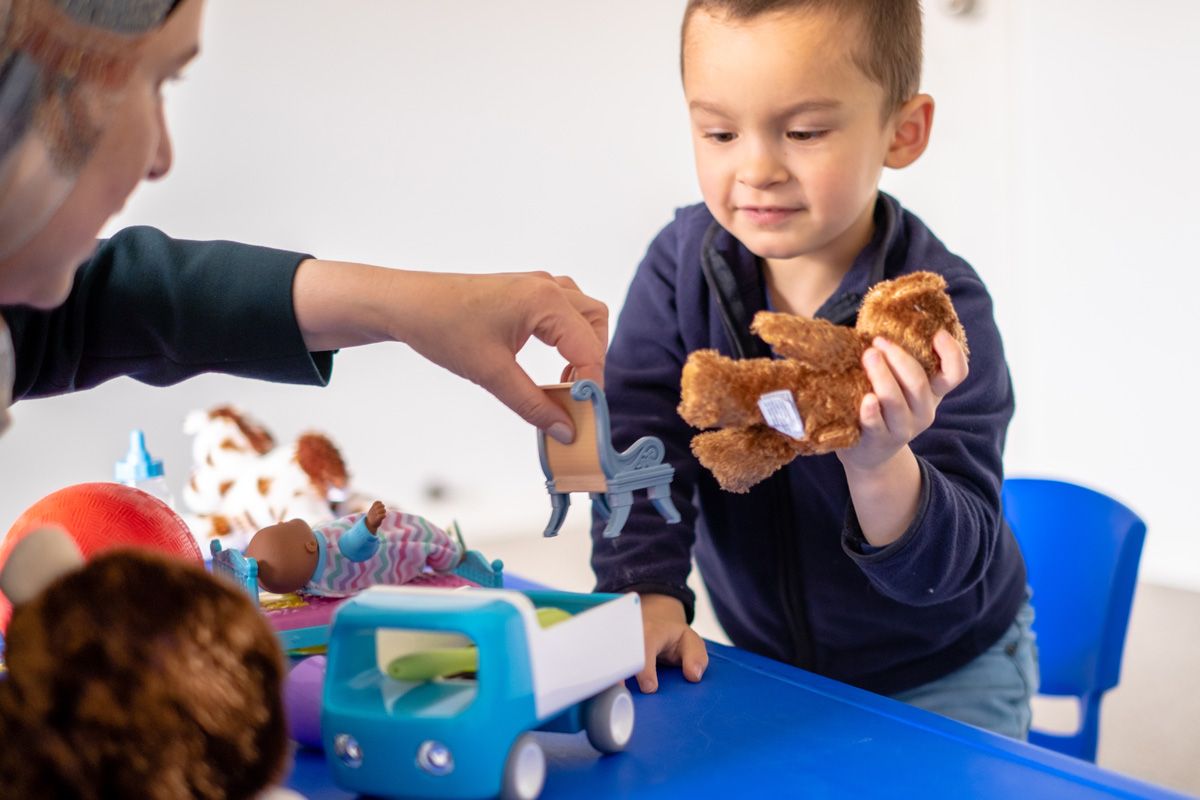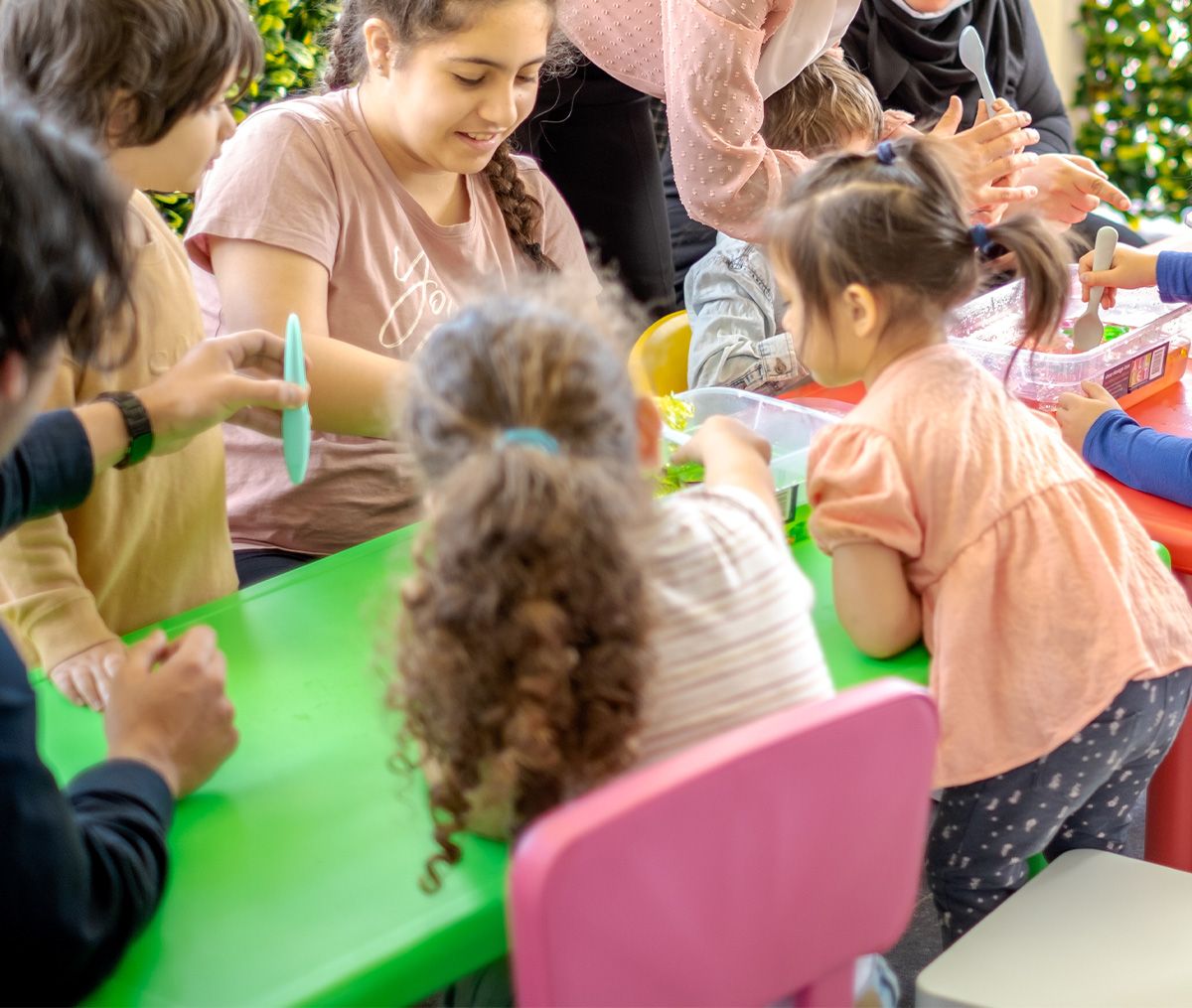The NDIS provides for all Australians under the age of 65, who have a permanent and significant disability, with the reasonable and necessary services and supports they need to enjoy an ordinary life. The NDIS is designed to help people with a disability achieve their goals. This may include greater independence, community involvement, employment and improved wellbeing.
The NDIS is not income tested and participants do not have to pay for the support they need.


Regardless of whether you have a diagnosis or not, if your child is under the age of seven, the first step to obtaining support for your child is through the early childhood early intervention (ECEI) approach. No referral is required, this means you can refer your child.
Early Childhood Early Intervention (ECEI) is funded by the National Disability Insurance Scheme (NDIS) and offers a range of supports designed to provide parents with the knowledge, skills and support they need to reduce the impact of their child’s developmental delay or disability and to help them build skills and independence.
For children aged seven years and under, access to the NDIS is via the Early Childhood Early Intervention (ECEI) approach. For those aged, seven to 65 years of age, potential NDIS participants must live in Australia and be an Australian citizen, permanent visa holder or hold a Protected Special Category Visa.
You can assess your child’s eligibility for access to NDIS funding online by reviewing a checklist entitled ‘Am I eligible’ via the NDIS website.


ECEI is coordinated by different partners depending on your residential area. You may contact NDIS on 1800 800 110 and they may put you to your local ECEI partner.
The ECEI partner will work with you to:
If your child needs longer-term support, your Early Childhood Partner may:
Evidence of disability
You will also need to provide evidence of your child’s disability as part of your child’s Access Request.
This information should be current and completed by your child’s treating health professional(s), usually your paediatrician, This will need to include information on your child’s disability and how it impacts their life.
What to expect
People who meet NDIS Access requirements are called ‘Participants’.
Once your child receives confirmation of their eligibility to participate in the NDIS, you will be contacted by a NDIA planner or NDIS Local Area Coordinator to make a time and date to have a planning conversation about your child’s needs.
It is very important that you prepare thoroughly for this meeting to ensure that your NDIS Plan is approved and the funding package you receive is able to accommodate all of your child’s support needs.
Getting help to prepare your NDIS Plan
To help you prepare a NDIS Plan for your child, you can work with a family member, friend or carer, an Early Childhood Partner or NDIS Local Area Coordinator, General Practitioner (GP) or other health professional.
There are also many useful NDIS planning information online to assist parents and carers to articulate comprehensive responses. EKF can also guide you on some of the best planning resources.Your first Plan will address your child’s support needs to reach their daily living needs as well as their longer-term goals. Once approved by the NDIA, you will be able to control and choose how to use.